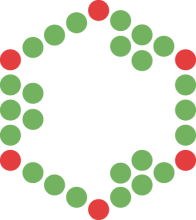Registration for diXa course "Microarray Analysis using R and Bioconductor" is now open
We are partners in the diXa FP7 infrastructure grant for chemical safety 'omics data, and as part of this, there is a course aimed at people who could benefit from an
introduction to microarray data analysis. This will take place at the EMBL-EBI from 14
-16 May 2013. No prior R or Bioconductor experience is required. Registration
closes on 21st April 2013.
This course is aimed at researchers and scientists (PhD
students, post-doc, staff scientist) who will benefit from an introduction to
microarray data analysis and training in how to perform simple analyses using
R/Bioconductor. All sessions are a combination of lectures and hands-on.
Prerequisites are a life science degree or equivalent experience, basic
understanding of microarray techniques, and a basic understanding of biostatistics.
No prior knowledge of R or Bioconductor is assumed.
Participants will receive a basic understanding of the R
syntax and ability to manipulate R objects. After this course students should
feel comfortable with the R/Bioconductor environment and be in a position to
continue their own explorations of the functionality of R and start using R for
their basic biostatistics needs. You will understand why Quality Control of
microarray is necessary, run a QC workflow and be able to correctly interpret
the results. A range of data exploration methods will be reviewed (PCA,
Hierarchical clustering, KNN and Kmean, Scatter plots).
For more information and a full programme:
The "Data infrastructure for chemical safety"
(diXa) project aims to support the EU Toxicogenomics Research Community in
developing non-animal assays in vitro/in silico for chemical safety, which
better predict human toxicity in vivo. The diXa project will design a robust
and openly accessible data infrastructure for capturing toxicogenomics data
produced by past, current and future EU research projects.
As part of the project we will organise a range of training
courses over the next 2 years; this is the first diXa training course open to
the general scientific community. diXa training courses will focus on hands-on
training using the consortiums unique combination of knowledge and expertise.
jpo

